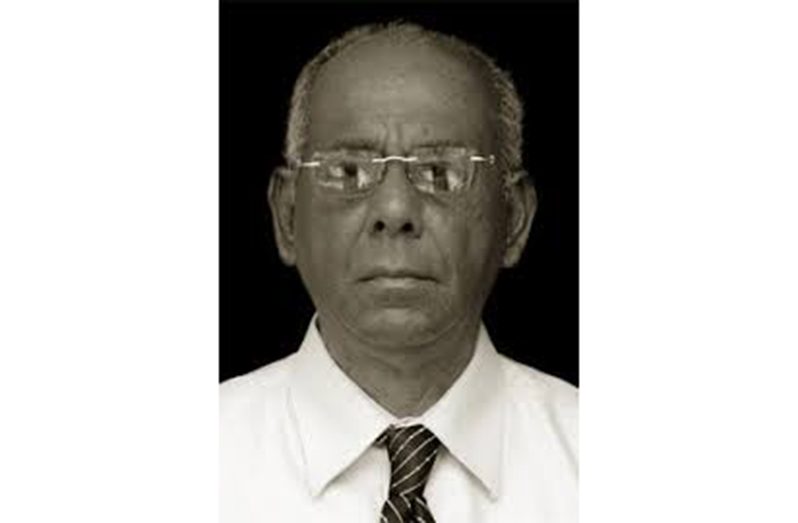— distinguished attorneys contend
FORMER Speaker of the National Assembly, Ralph Ramkarran, said that the ruling of the International Court of Justice (ICJ) that it has the jurisdiction to hear Guyana’s application on the Guyana, Venezuela border case is a ‘historic victory’ for the country.
On Friday, in a 12-4 majority decision, judges at the ICJ found that they have jurisdiction to hear a suit brought by Guyana, arguing the border was established by an 1899 arbitration between Venezuela and the then colony of British Guiana. This ruling paves the way for Guyana to make a substantive case on the border controversy, through which the country seeks to obtain the final and binding judgement of the 1899 Arbitral Award.
Though Guyanese jurist and international public servant, Dr. Bertrand Ramcharan, was of the opinion that the ICJ’s ruling was “reckless”, possibly harming Guyana’s case, Ramkarran posited, “… the Court’s jurisdiction to hear Guyana’s application on the validity of the 1899 Award and the consequential validity of Guyana’s border, Guyana has won an historic victory.”
In a column published in the Stabroek News, Dr. Ramcharan opined that the World Court’s framing of the issue was problematic, given that the ruling deemed the border controversy a “land boundary dispute” while Guyana’s case, until now, has been that there is no issue with the land boundary establishing, in 1899, that Essequibo belongs to Guyana. The substantive matter, Dr. Ramcharan said, is the confirmation of this 1899 decision.
The Former Speaker, a distinguished attorney-at-law himself, disagreed with this reasoning, however. In a letter to the Stabroek News, he posited, “It is abundantly clear from the decision that the World Court did not invent a land or territorial dispute. It was Guyana that raised the issue in the context of the 1899 Award.”
What this meant, he explained, was that the court did not invent a land boundary dispute. Instead, he posited that recognising that there is an existing controversy about the boundary is inextricably linked to Guyana’s assertion that the 1899 award– which upheld the boundary that illustrates British Guiana owned the territory west of the Essequibo River– is valid.
For further context, both Venezuela and Great Britain accepted that 1899 award and subsequently, a mixed-boundary commission appointed jointly by the two countries, carried out a survey and demarcation, between 1901 and 1905, of the boundary as stipulated by the award. This brought the 1905 valid and binding agreement about the boundary between Guyana and Venezuela.
DOES NOT SHARE DR RAMCHARRAN’S VIEWS
In a short statement issued on Monday night, the Government of Guyana stated that it does not share the reservations of Dr. Ramcharran.
“The Government and people of Guyana welcome the World Court’s decision which represents a notable victory for the rule of law internationally and for Guyana,” the statement read.
The lawyers representing Guyana at the ICJ, Mr Paul Reichler and Professor Philippe Sands, QC, also dismissed Dr Ramcharran’s reservation, affirming that this ruling provides Guyana with the opportunity to obtain a final and binding judgement on the validity of the 1899 award– something the country had been seeking since independence in 1966.
“The ruling follows the careful and considered approach of the court, as reflected in its practise. The court has expressed no view on whether there is or is not a land boundary dispute between Guyana and Venezuela,” the duo said, as reported by Demerara Waves.
“Rather, it has decided to exercise jurisdiction on the question of whether such a dispute has been subject to a ‘definitive settlement’, a question that turns on the validity of the Arbitral Award of 1899,” they added in the Demerara Waves report.
ENTIRELY FAVOURABLE TO GUYANA
They also submitted that through their combined experience, they believe that the judgement is reasonable and “one that is entirely favourable to Guyana”.
Despite that 1899 Arbitral Award, Venezuela still claimed a large portion of Guyana’s territory. Eventually, in 1966, a few months before Guyana became an independent nation, the Geneva Agreement (formally known as the Agreement to Resolve the Controversy over the Frontier between Venezuela and British Guiana) was signed. Essentially, this agreement governs the controversy and intended to allow two countries to resolve the controversy in a peaceful manner.
Article IV of the Geneva Agreement, however, makes provision for the involvement of the Secretary-General of the United Nations, who “shall choose another means stipulated in Article 33 of the Charter of the United Nations, and so on until the controversy has been resolved or until all means of peaceful settlement there contemplated have been exhausted”.
This provision is what paved the way for the “Good Officer” process, which was a framework that allowed for discussions on the resolution of the controversy. In 2016, outgoing United Nations (UN) Secretary-General, Ban Ki-moon, agreed with his successor, António Guterres, to continue to use the Good Officer Process until the end of 2017 as a means of arriving at a settlement. After this process failed, in 2018, the UN Secretary-General referred the case to the ICJ. And this is where Guyana is currently hoping to resolve the matter, favourably, once and for all.
However, Ramkarran did state that he is “disappointed” that the ICJ declined jurisdiction for the events after the date of the Geneva Agreement. Following the Geneva Agreement, however, Venezuela has been aggressive towards Guyana, acting in clear breach of that agreement. That country seized Guyana’s half of the Ankoko Island and military aggression at the border area has been reported.
Ramkarran’s letter emphasised that he was speaking on behalf of himself and not the Government nor the lawyers who appeared for the Government at the ICJ. It is important to note that he served on the Ministerial Team for the Guyana/Venezuela Border Controversy from 1994 to present. In August, this year, he was appointed as an advisor to the Minister of Foreign Affairs on Border Issues.


.jpg)











